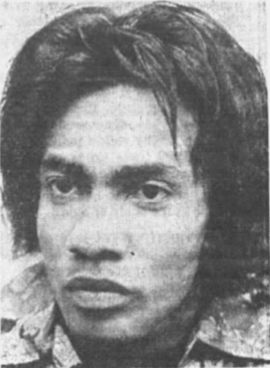 Chicago Tribune, John Bartley On August 2, 1975, Chicago police were called to intervene in a fight between 22-year-old James Dixon and his girlfriend’s father in the Morgan Park neighborhood on the far southside of Chicago. Patrolman Francis Zoller and Sergeant Richard Scanlon arrived, and Scanlon attempted to break up the fight. During this altercation, Scanlon was shot, and Dixon was accused of firing the shot that injured him. Charged with aggravated battery and attempted murder, Dixon went to jail to await trial. Scanlon was hospitalized for one day with a minor wound and received a police department medal for the incident.
Just a year earlier,
Dixon
had been exonerated on a murder conviction after a witness recanted and another witness gave a different account of the crime. That experience was still fresh in his mind. He had also received warnings about the stiff sentences given to defendants convicted at trial of shooting police officers. He decided to take a plea deal.
In July 1976, Dixon pled guilty to aggravated battery. Prosecutors had said that if Dixon pled guilty, he would be sentenced to a year in prison, nearly equivalent to the time he had already served, and he would be immediately released.
Just days after Dixon entered his plea, prosecutors and a news reporter received an anonymous tip that Dixon had not shot Scanlon. Instead, according to the tipster, Scanlon had accidentally shot himself with an illegal pen gun that had discharged in his shirt pocket. Rather than face discipline for carrying an unauthorized weapon, Scanlon had let Dixon take the fall. Upon investigating this claim, police and prosecutors learned that the tipster was telling the truth; Scanlon had lied about what had occurred.
Criminal Court Judge Frank Machala vacated Dixon’s conviction and dismissed the charge against him on August 20, 1976. After the dismissal, Dixon told reporters, “I spent a year in that hell-hole, that filthy, dirty hell-hole, and it looks like I was framed.”
On September 13, 1976, State’s Attorney Bernard Carey called a press conference to announce Scanlon’s indictment on charges of obstruction of justice and official misconduct. When questioned by the grand jury, Scanlon invoked his Fifth Amendment right against self-incrimination. Eventually, prosecutors and Scanlon reached a plea deal that involved no jail time. Instead, Scanlon would resign from the police department, plead guilty to official misconduct, and agree to two years of probation without supervision. While there was some public outcry about this light sentence, the deal was approved by Circuit Court Judge Robert Massey.
After the charge against him was dismissed, Dixon filed a lawsuit in U.S. District Court against the City of Chicago. In an out-of-court settlement approved by Judge Julius J. Hoffman on February 1, 1977, the City agreed to pay Dixon $50,000 for his false imprisonment.
- Meghan Barrett Cousino |